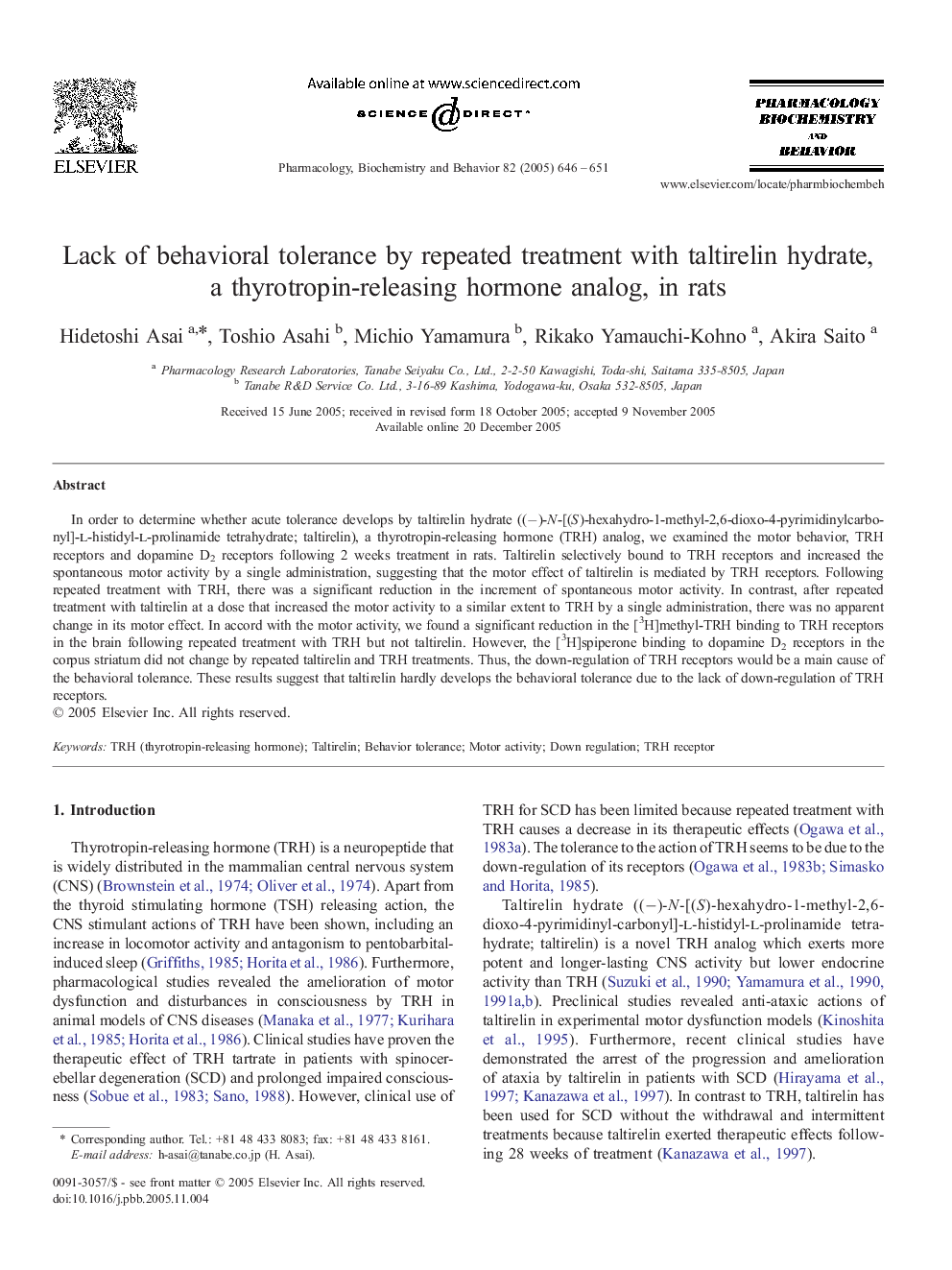| Article ID | Journal | Published Year | Pages | File Type |
|---|---|---|---|---|
| 10838686 | Pharmacology Biochemistry and Behavior | 2005 | 6 Pages |
Abstract
In order to determine whether acute tolerance develops by taltirelin hydrate ((â)-N-[(S)-hexahydro-1-methyl-2,6-dioxo-4-pyrimidinylcarbonyl]-l-histidyl-l-prolinamide tetrahydrate; taltirelin), a thyrotropin-releasing hormone (TRH) analog, we examined the motor behavior, TRH receptors and dopamine D2 receptors following 2 weeks treatment in rats. Taltirelin selectively bound to TRH receptors and increased the spontaneous motor activity by a single administration, suggesting that the motor effect of taltirelin is mediated by TRH receptors. Following repeated treatment with TRH, there was a significant reduction in the increment of spontaneous motor activity. In contrast, after repeated treatment with taltirelin at a dose that increased the motor activity to a similar extent to TRH by a single administration, there was no apparent change in its motor effect. In accord with the motor activity, we found a significant reduction in the [3H]methyl-TRH binding to TRH receptors in the brain following repeated treatment with TRH but not taltirelin. However, the [3H]spiperone binding to dopamine D2 receptors in the corpus striatum did not change by repeated taltirelin and TRH treatments. Thus, the down-regulation of TRH receptors would be a main cause of the behavioral tolerance. These results suggest that taltirelin hardly develops the behavioral tolerance due to the lack of down-regulation of TRH receptors.
Related Topics
Life Sciences
Biochemistry, Genetics and Molecular Biology
Biochemistry
Authors
Hidetoshi Asai, Toshio Asahi, Michio Yamamura, Rikako Yamauchi-Kohno, Akira Saito,
